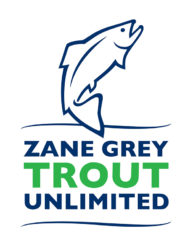The Trump administration denied a key permit on Wednesday for a massive gold and copper mine in Alaska striking a devastating blow to a project opposed by an unusual coalition that includes the president’s son as well as conservationists and Alaska Natives.
In a statement, U.S. Army Corps of Engineers Alaska Commander Col. Damon Delarosa said the agency would block Pebble Mine because it determined that the plan the Pebble Limited Partnership submitted to deal with the project’s waste “does not comply with Clean Water Act guidelines and concluded that the proposed project is contrary to the public interest.”
While the Trump administration has pressed ahead to weaken environmental protections and expand energy development before the president’s term ends in January, the upcoming mine decision represents a major win for environmentalists, fishing enthusiasts and tribal rights.
Trump officials had allowed the Pebble Limited Partnership, a subsidiary of a Canadian firm, to apply for a permit even though the Obama administration had concluded in 2014 the firm could not seek federal approval because it could have “significant” and potentially “catastrophic” impacts on the world’s largest sockeye salmon fishery in nearby Bristol Bay. As recently as July, the Corps concluded that the mine would have “no measurable effect” on area fish populations.
But a slew of Alaskan and federal agencies warned that the project would inflict permanent damage on the region, destroying more than 2,800 acres of wetlands, 130 miles of streams and more than 130 acres of open water within Alaska’s Koktuli River Watershed. The proposed site lies at the river’s headwaters.
And an unlikely coalition of opponents formed when Trump’s eldest son, Donald Trump Jr., Fox News host Tucker Carlson and Vice President Pence’s former chief of staff, Nick Ayers – who all have enjoyed fishing or hunting around Bristol Bay – joined with traditional environmental groups and the region’s tribes in opposition to the project.
Opponents received a major boost in September when the Environmental Investigation Agency (EIA) released recordings of secretly-taped Zoom calls in which the project’s top executives boasted of their influence inside the White House and to Alaska lawmakers to win a federal permit. Alaska’s two GOP senators, Lisa Murkowski and Dan Sullivan, issued statements saying they opposed the plan and within days Pebble’s CEO, Tom Collier, resigned.
Pebble issued a plan to the Corps this fall outlining how it would compensate for any damage inflicted by the project, which would span more than 13 miles and require the construction of a 270-megawatt power plant, natural gas pipeline, 82-mile double-lane road, elaborate storage facilities and the dredging of a port at Iliamna Bay.
While the company applied for just a 20 -year permit, Northern Dynasty Minerals CEO Ronald Thiessen said in secretly-recorded conversations that he expected the operation could extract valuable minerals for decades longer than that.
Federal officials concluded that the plan the company outlined for curbing the operation’s environmental impact was not sufficient, the two officials briefed on the decision said.
President-elect Joe Biden has already said he would not allow the mine to be built.
“It is no place for a mine,” Biden said in a statement in August. “The Obama-Biden Administration reached that conclusion when we ran a rigorous, science-based process in 2014, and it is still true today.”
Trout Unlimited President Chris Wood, whose anglers’ group had campaigned against the project, said that a decision to deny it a permit would be “a victory for common sense. Bristol Bay is the wrong place for industrial-scale mining, and we look forward to working with the state and other partners to protect Bristol Bay and its world-class fisheries permanently.”
Click HERE for the full article by Juliet Eilperin in The Washington Post.
